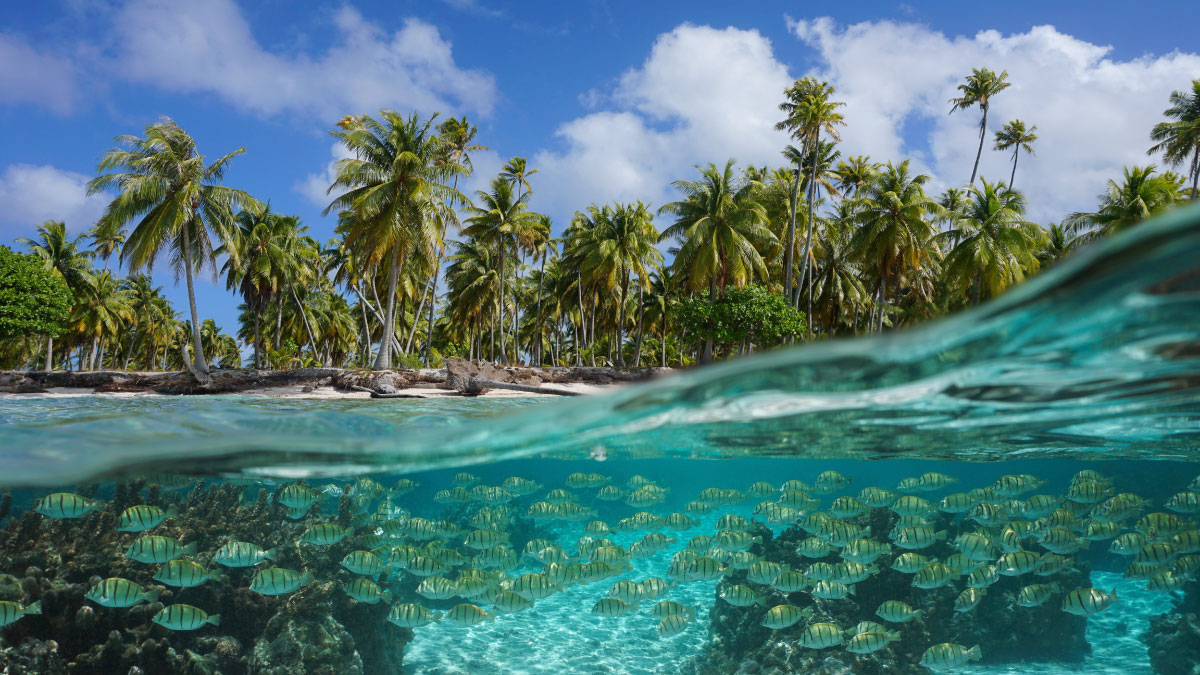Guidelines to help governments, companies and consumers benefit from sustainable trade in precious plants and animals now include elements such as climate resilience and marine biodiversity.

©seaphotoart
UNCTAD has launched its updated BioTrade Principles and Criteria, a set of guidelines for governments and companies to conduct biodiversity-friendly trade, to address new challenges and priorities now and in the future.
The term “BioTrade” refers to the supply and commercialization of goods and services derived from a country’s biodiversity. Examples include the production of jujube in Myanmar or farming of queen conch in the Caribbean.
The illegal wildlife trade is a global, multibillion-dollar enterprise accelerating biodiversity loss, with an estimated one million plant and animal species now at risk of extinction, according to a United Nations report. The threat is not only ecosystem collapse but also a heightened risk of new pandemics such as COVID-19.
The guidelines, first created in 2007, set out how the Earth’s precious natural resources can be traded in an environmentally, socially and economically sustainable manner.
“Biodiversity is a global concern and priority. Learning from practices, experiences, legal and policy frameworks is key, as reflected in these updated principles and criteria, which guide practitioners in this field,” said UNCTAD Deputy Secretary-General Isabelle Durant.
The seven principles address issues such as conservation, restoration and sustainable use of biodiversity, equitable sharing of the benefits of BioTrade between different actors, and respect for the rights of indigenous people and local communities.
The updated principles and criteria take into account experiences, best practices and lessons learned by partners and practitioners since the first edition, adding new elements such as climate resilience, marine biodiversity and sustainable tourism.
They also update elements such as workers’ rights, health and safety, and access and benefit sharing under the Nagoya Protocol.
Proven benefits to governments, companies and workers
The principles and criteria seek to encourage trade and investment in developing countries’ unique natural resources, including various species of flora and fauna, genetic resources and ecosystems, while ensuring their long-term conservation and enhancement.
They have been implemented in more than 65 countries to date, with several examples of successful adoption by governments, companies and communities.
In Myanmar, they helped to improve the health and safety of workers at Salay Shae Saung, a small business making immune-boosting natural jujube and tamarind syrup. Improved traceability and documentation of the business’s factories and farmers enabled it to continue operations during the COVID-19 restrictions, while keeping workers, many of whom are women, safe and employed.
In Namibia, the Eudafano Women’s Co-operative produces ingredients derived from marula and kalahari melon seeds for the domestic and international cosmetics industry, in line with the BioTrade principles and criteria. It benefits over 4,000 women and their communities.
In Peru, a laboratory for natural products, Takiwasi, and an indigenous producers’ organization, Ampik Sacha, implemented a business model based on traditional knowledge associated with medicinal plants in the region of San Martín, benefiting both people and nature.
This scheme, which is in line with principles on fair and equitable benefit-sharing, improves the indigenous population’s living conditions, preserves old traditions and promotes the sustainable use of forest resources.
“The updated principles and criteria will help strengthen company compliance in the future,” said Diego Llosa Velásquez, the vice minister of foreign trade in Peru. “We’re committed to working with more companies to incorporate BioTrade as a sustainable business model.”
Following two years of consultations with governments, companies and entrepreneurs, the updated principles and criteria reflect their experiences since 2007.
They are accompanied by an online BioTrade self-assessment tool to help companies and initiatives on their paths towards environmentally friendly business.
BioTrade: Sustainable now and in the future
The principles and criteria were updated as part of the global BioTrade programme launched by UNCTAD in 2018, with the support of the Swiss State Secretariat for Economic Affairs SECO.
They are more closely aligned with key multilateral environmental agreements, notably the Convention on Biological Diversity (CBD) and the Convention on International Trade in Endangered Species of Wild Fauna and Flora (CITES).
They are also in line with the UN 2030 Agenda for Sustainable Development, the Paris climate agreement and the Nagoya Protocol on access and benefit-sharing of genetic resources.
Partners of UNCTAD’s BioTrade programme have called for the updated principles and criteria to be reflected in the new Post-2020 Global Biodiversity Framework, which will provide the biodiversity roadmap for the next decade.
The framework is expected to be adopted during the 15th Conference of the Parties to the CBD, slated for the second half of 2021. The partners have also encouraged more countries and stakeholders to use the principles and criteria to build resilient sectors, businesses and communities.


